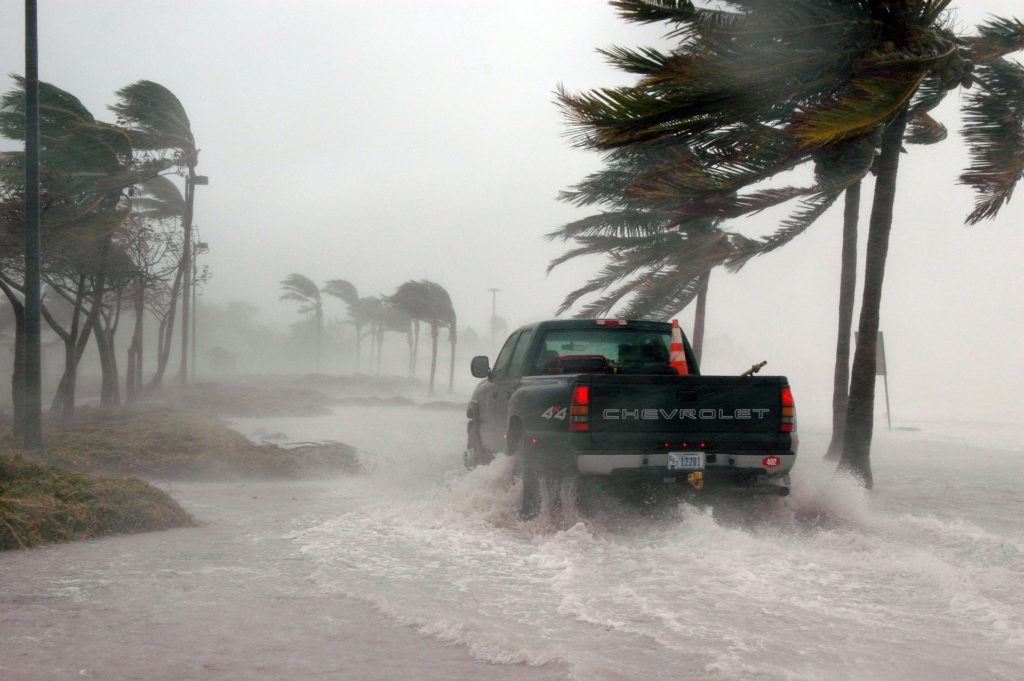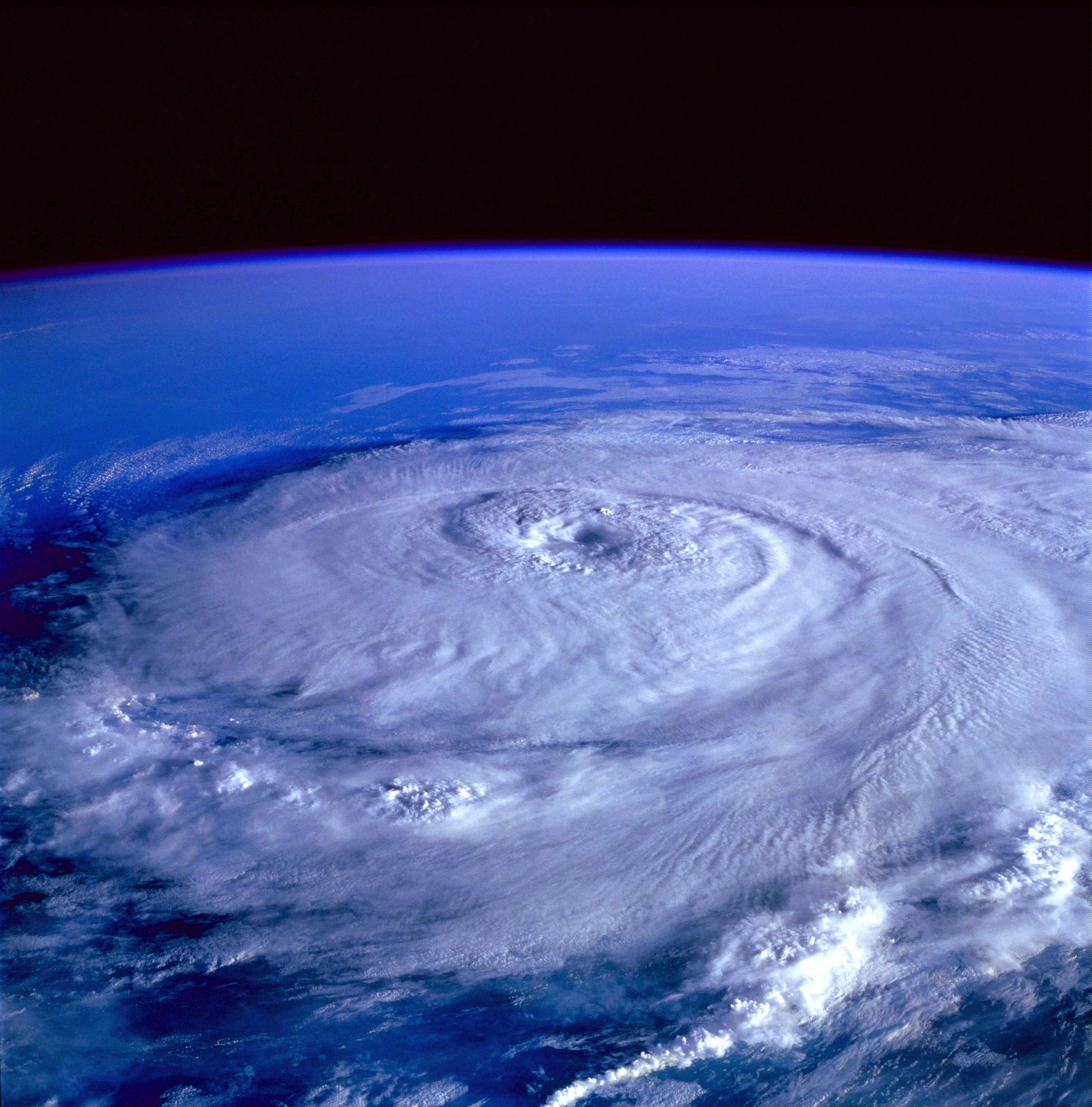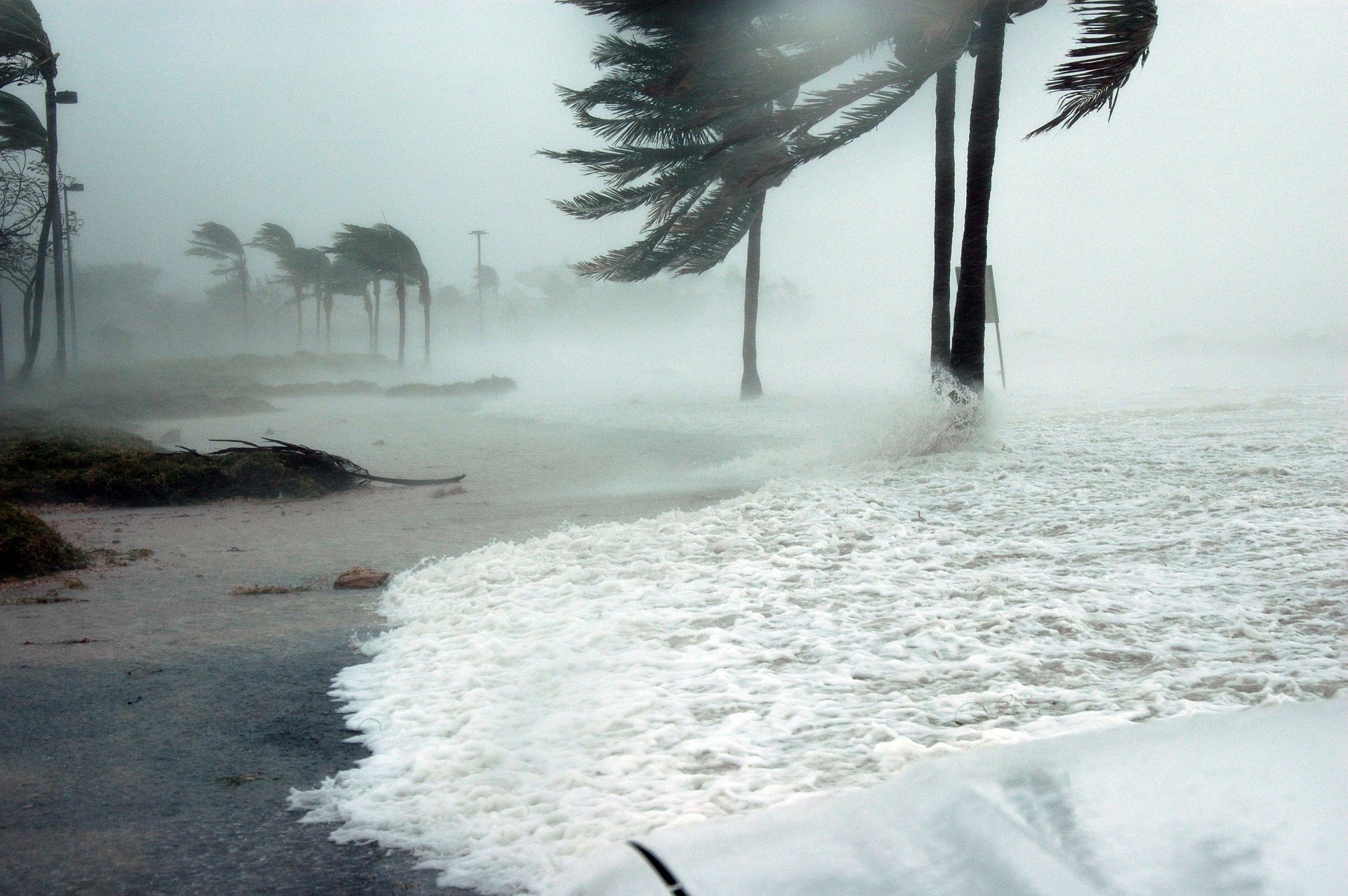Hurricane Dorian is already impacting the Bahamas and is expected to hit the islands full force on Sunday, Sept. 1. By now, Floridians, Georgians and Carolinas are poised for an unwelcome visit from the Category 4 hurricane with 140 mph winds. Dorian should pass Florida on Monday, although meteorologists are not expecting a direct hit with the most recent model. Wednesday or Thursday, it is expected to hit the Carolinas and Georgia. Jeffrey Byard, a top FEMA official, shared the agency’s preparations with MSN.
FEMA also has some good advice on how to get ready days or hours before a storm strike.
When a hurricane is 18-36 hours from arriving
- Bookmark your city or county website for quick access to storm updates and emergency instructions.
- Bring loose, lightweight objects inside that could become projectiles in high winds (e.g., patio furniture, garbage cans).
- Anchor objects that would be unsafe to bring inside (e.g., propane tanks).
- Trim or remove trees close enough to fall on the building.
- Cover all of your home’s windows. Permanent storm shutters offer the best protection for windows. A second option is to board up windows with 5/8” exterior grade or marine plywood, cut to fit and ready to install.

When a hurricane is 6-18 hours from arriving
- Turn on your TV/radio, or check your city/county website every 30 minutes in order to get the latest weather updates and emergency instructions.
- Charge your cell phone now so you will have a full battery in case you lose power.
- Make sure you have plenty of water, food, medications and even activities to keep the kids busy during the storm.
When a hurricane is 6 hours from arriving
- If you’re not in an area recommended for evacuation, plan to stay at home or where you are. Let friends and family know where you are.
- Close storm shutters, and stay away from windows. Flying glass from broken windows could injure you.
- Turn your refrigerator or freezer to the coldest setting and open only when necessary. If you lose power, food will last longer. Keep a thermometer in the refrigerator to be able to check the food temperature when the power is restored.
- Turn on your TV/radio, or check your city/county website every 30 minutes in order to get the latest weather updates and emergency instructions.

Survive DURING
- If told to evacuate, do so immediately. Do not drive around barricades.
- If sheltering during high winds, go to a FEMA safe room, ICC 500 storm shelter, or a small, interior, windowless room or hallway on the lowest floor that is not subject to flooding.
- If trapped in a building by flooding, go to the highest level of the building. Do not climb into a closed attic. You may become trapped by rising flood water.
- Listen for current emergency information and instructions.
- Use a generator or other gasoline-powered machinery outdoors ONLY and away from windows.
- Do not walk, swim or drive through floodwaters. Turn Around. Don’t Drown! Just six inches of fast-moving water can knock you down, and one foot of moving water can sweep your vehicle away.
- Stay off of bridges over fast-moving water.

Be Safe AFTER
- Listen to authorities for information and special instructions.
- Be careful during clean-up. Wear protective clothing and work with someone else.
- Do not touch electrical equipment if it is wet or if you are standing in water. If it is safe to do so, turn off electricity at the main breaker or fuse box to prevent electric shock.
- Avoid wading in floodwater, which can contain dangerous debris. Underground or downed power lines can also electrically charge the water.
- Save phone calls for emergencies. Phone systems are often down or busy after a disaster. Use text messages or social media to communicate with family and friends.
- Document any property damage with photographs. Contact your insurance company for assistance.












